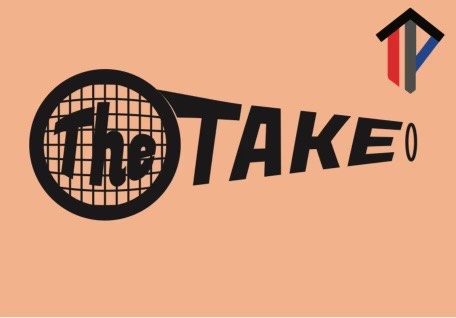Pushing back school start times: the impact sleep deprivation has on teenagers
A sleep-deprived teenager sleeps in a bed. August 11, 2022.
Beginning in 2013, the Start School Later movement sparked conversation around a topic that most people previously overlooked: high school start times.
Sleep experts generally conclude that high schools, which, on average, start from 7:45 to 8:15 a.m. in the United States, begin too early.
The American Academy of Sleep Medicine (AASM) and the American Academy of Pediatrics (AAP) suggest that high schools should not begin earlier than 8:30 a.m. as teenagers require between 8.5 to 9.5 hours of sleep to thrive, and they are biologically inclined to go to sleep around 11 p.m. and wake around 8 a.m.
The rationale behind the suggestion to delay school start times goes deeper than after-school activities consuming the time of students, as many in the past have suggested.
Other factors contributing to lack of sleep include the quantity of homework, another hotly-debated topic often pointed to as one of the biggest offenders,, extracurriculars and leisurely activities that often consume time after school.
The main argument to delaying school start times is thought to be biological.
Teens and adolescents, generally beginning at puberty, experience a “phase delay,” which is commonly defined as a two hour shift compared to prepubescent sleep-wake cycles. This is caused by the delayed release of melatonin, a chemical crucial in aiding in falling asleep and an adjusted “sleep drive,” which is commonly defined as the period of time it takes to fall asleep after being awake for 14.5 to 18.5 hours. Sleep drive is longer in postpubescent teenagers compared to prepubescent teenagers.
A study carried out by Rachel Widome and Aaron Berger of the University of Minnesota School of Public Health shows that students who experienced a later school start time had significantly reduced amounts of “catch up” sleep on weekends. Such sleep practice may help correct the weekly sleep deficit but can worsen morning exhaustion and circadian disruption.
Simply put, teenagers, who are neurologically hardwired to stay up and wake up later are being forced to wake earlier than their body would naturally, disrupting their circadian rhythms and causing potential problems in their scholarly and personal lives.
Adolescents, who not only face biological but also lifestyle demands to stay up later, tend to get such little sleep that the average teenager in the United States is chronically sleep deprived, according to many studies.
Being sleep deprived has very strong correlations with several physical, mental and social concerns.
Being sleep deprived can lead to increased risk of obesity, higher risk of stroke, greater reliance on stimulants such as caffeine, struggles with complex tasks and memory and lower academic performance.
Teenagers, who are already prone to being irritable and having difficulty with emotional regulation thanks to neurochemical causes, are also at a major risk for high rates of anxiety, depression and even suicide ideation and attempts.
Licensed therapist Holly Lee Smith, who specializes in anxiety, stress management and adolescent mental health, offered her insight on the impact of sleep deprivation on teens.
“Sleep plays a huge role in mental health,” said Smith. “Things we look at first in mental health are food, sleep and exercise.”
Smith explained the importance of sleep.
“Sleep is something that is needed for all people, especially teens, because your brain is developing,” Smith continued. “You also need rest, and sleep is going to help. Think of it like charging your phone. You can’t use your phone at one percent; you can’t use your brain at one percent or even fifty percent. You need to be fully charged.It is harder to control anxiety and intrusive thoughts when we do not have sleep.”
Smith argued that pushing school start times back to later in the day could be beneficial to the mental health of teenagers.
“I would say high schoolers generally stay up later, and they sleep in later,” said Smith. “[Delaying start times] would give them the opportunity to sleep. I think it could be a good thing, and some schools have done it, and they see better attendance.”
Critics who do not support changing school start times cite higher costs, increased traffic in the mornings, potential childcare loss and scheduling conflicts for students who participate in extracurriculars as well as bussing problems.
While it may be difficult to implement, delaying start times provides great benefits for youth all over the country.
Smith offered advice to teenagers.
“Routine is important,” Smith stated. “Sleeping at the same time is important. It is important to know that naps are not as good as a full night’s sleep or getting consistent sleep. Being consistent with your schedule of when you go to sleep, which can be hard when you’re juggling homework because most teens stay up really late to do homework. Making sure that we shut the lights off at a certain time in order to get sleep, instead of cramming in homework, is important.”
While her advice may be difficult for some students to follow, even small steps are important in order to help teenagers achieve the rest they need.
Some school districts have begun to take heed, including Bloomfield Hills Schools and Dearborn Public schools, which have pushed their high school start times from 7:25 a.m. to 7:55 a.m.
Ypsilanti Community Schools pushed its high school start time from 7:30 a.m. to 8:15 a.m. during the 2017-2018 school year.
Plymouth Canton Community Schools pushed back high school start times by fifteen minutes, starting at 7:25 am.
While these delayed start times may not be the 8:30 a.m. that the AASM and AAP suggest, even small steps could be beneficial.
Your donation will support the student journalists of Salem High School - MI. Your contribution will allow us to purchase equipment and cover our annual website hosting costs.

Arya Sharma is an International Baccalaureate senior at Salem High School. He was introduced to The Perspective during summer 2022 through RJ Doroshewitz,...












